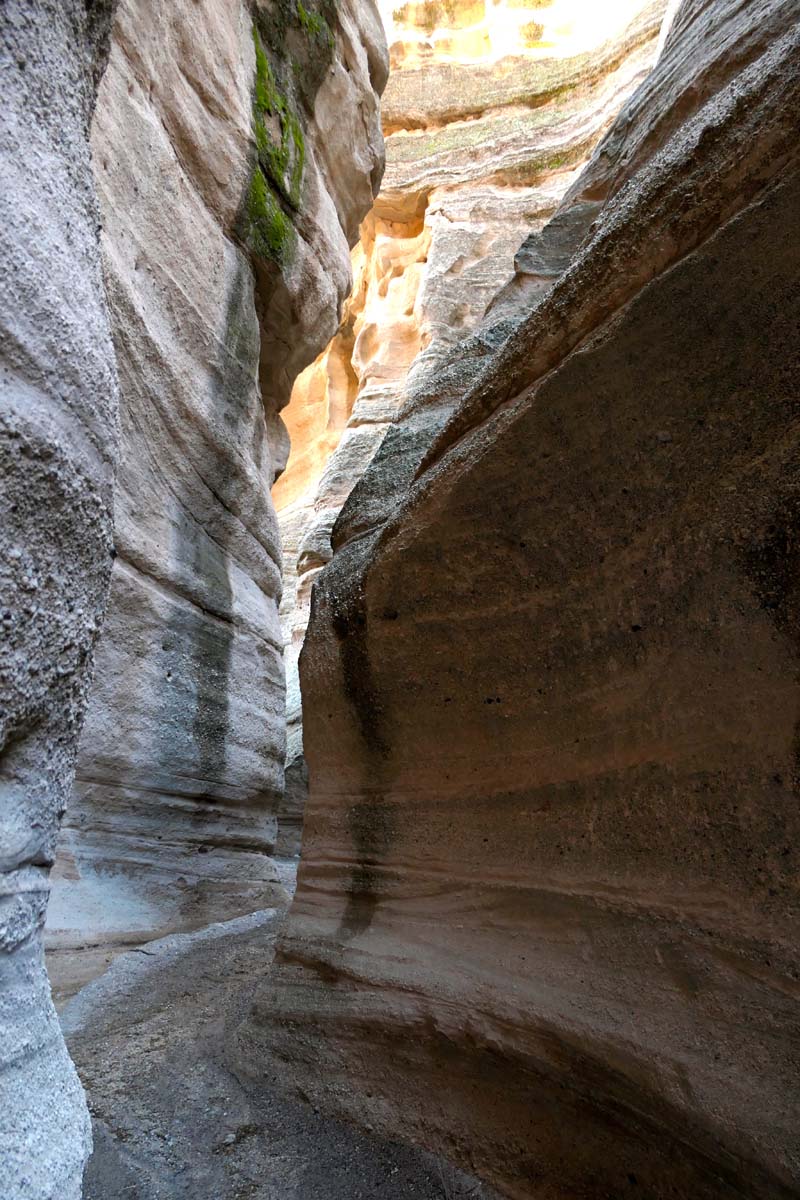I was in a foul mood yesterday, raging against the limitations that surgeries have imposed on my life. Just three years ago this week, I had exulted in a solo hike at Kasha-Katuwe National Monuments (Tent Rock) within the lands of the Cochiti Pueblo in New Mexico. (I had described the hike here.) The canyon trail is a one-way trek into a narrow, “slot” canyon with a steep (630-ft) climb to the mesa top with excellent views of the Sangre de Cristo, Jemez, Sandia mountains and the Rio Grande Valley. Now I am exhausted after a few miles on flat territory at sea level…

OK: shift in perspective – first of all I HAD these glorious experiences, as the photos remind me and I can still hike somewhere. Secondly, I am snug in a safe place and not in a war zone. And finally, you never know what the future holds, with the right mindset.



Case in point: a blind linguistics professor named Sheri Wells-Jensen and a crew of eleven other disabled people are on a mission to prove that disabled people have what it takes to go to space. And not only that, but that they may have an edge over non-disabled people. The linguist had argued in a 2018 article in Scientific American that in emergency situations on board a space shuttle differently-abled people might be assets, since they could navigate in darkness, pay attention to signals that typical astronauts would not necessarily pick up, and communicate (if deaf, with ASL, for example) when other modes of communication failed. Astronauts in wheelchairs could save the 2.5 hours a day that the others have to use strength equipment to avoid muscle loss, to do research or repairs, etc.


The whole idea is to look at the strengths drawn from what are considered limitations and apply them. People started to explore it seriously. George T. Whitesides, the former chief of staff of NASA under Obama, and Anna Voelker, the founder of SciAccess, a non-profit organization dedicated to accessibility of the STEM fields to disabled adults and children proposed to do a test run with a diverse group of disabled people in a parabolic flight, to see what problems would arise with zero gravity and how to solve them. The flight was quite successful. (You can hear all about it here.)





It is surely no coincidence that Wells-Jensen’s research focusses on cognition across the cosmos, a form of astro-lingustics that models potential alien languages. She realized that in many of the traditional approaches had the assumption baked in that something like human visual perception was at the base of scientific development. As a blind person she was trying to model possibilities of alien technology that could make do without that mode.


I brought this up as a reminder to myself that there are always ways to stretch ourselves, to redefine what we too easily accept as limitations. I have no intention to ever visit a space station, mind you, but want to apply the principle of exploring alternatives that are open to me and might enrich my life.


And speaking of exploring alternatives in the context of extraterrestrial research, here is a fun bit on what astro-biologists are up to these days. They are looking, here in the Pacific Northwest no less, for clues about alien modes of intelligence by researching octopus minds. Yup. No kidding. On the most basic level, we humans have a centralized brain that is the control center of all that is perceived or enacted. But not so the octopus. Their “intelligence” is distributed, with most of their neurons placed in their arms and their suckers, basically each thinking for themselves. So how does octopus behavior get coordinated, with so many different control enters at work? That is what they are trying to find out, with the mindset that it’s not about how intelligent they are; it’s about how they are intelligent. Jupiter’s icy moons that are thought to have oceans underneath that ice. And if, say, they had hydrothermal vents, theoretically, they could support complex life. Octopi on Europa?



I tell you, – well, I tell myself – life doesn’t stop to be interesting, just because you can’t hike in New Mexico any longer! I will be like this: blossoming under difficult circumstances. We should all be.

Here is some appropriate space music…
.







Carl Wolfsohn
Good thoughts.
Sam Blair
Amor fati, claimed Marcus Aurelius, one of Rome’s greatest Emperors, who lived with unrelenting pain.
Philip B. Bowser
Thank you, Friderike, for getting my day off to a good start! Also enjoyed Sam’s amor fati. Attitude really rules all.
Yesterday, a radio interviewee reminded me that anxiety and depression are perfectly natural & healthy responses to really crummy circumstances. Instead of medicating them away, we should try to figure out what message those feelings are trying to communicate. LIght bulb went on over my head, shoulders dropped, teeth unclenched, and it was a much better day than usual.
My recoveries from medical stuff have always taken longer than I expected and also went quicker than I expected. Best wishes for your recovery from surgery.
Nicky
Ich erinnere mich – fantastisch! Unsere geplante Fahrt dorthin hat Covid verhindert …
Sara Lee Silberman
Glorious photos, and what a revelation about the octopus! Will I ever be able to eat one again??
Kudos for another rich posting!